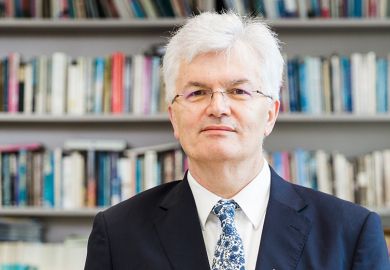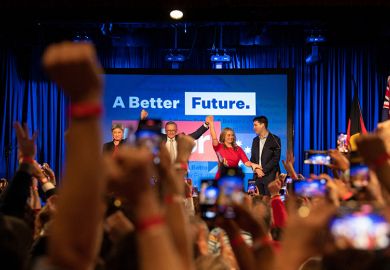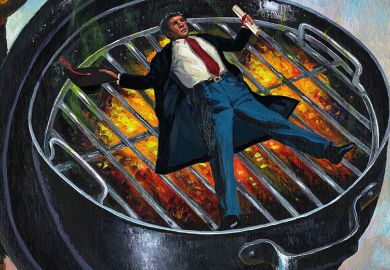Lawyer and rising political star Jason Clare has been named Australian education minister, on the day the newly elected Labor government assumed majority status.
In a surprise move, prime minister Anthony Albanese chose not to appoint long-serving shadow education minister Tanya Plibersek to the substantive role when he announced his ministry on 31 May.
Instead he handed the position to Mr Clare, who holds former prime minister Paul Keating’s western Sydney seat of Blaxland and has been touted as a future prime minister.
Mr Clare described the post as an “extraordinary” privilege. “Education is the most powerful cause for good in this country,” he tweeted.
Mr Clare, who turned 50 in March, brings considerable ministerial experience to the role. He served as minister for justice, home affairs and defence materiel in the Rudd and Gillard governments about a decade ago.
More recently he was shadow minister for housing, homelessness, regional services, territories and local government. He also offered a star turn as official Labor Party spokesman during the recent election campaign.
He began his career as a policy adviser to the New South Wales police minister in the late 1990s and state premier Bob Carr in the early 2000s.
Universities Australia said it looked forward to working with the new minister “to ensure all Australians can access a world-class education and realise their full potential”.
“Minister Clare understands that universities are an essential part of an optimistic, productive, modern economy and society,” said chief executive Catriona Jackson.
Counting has concluded in three House of Representative electorates that had remained undecided since the 21 May election, with two going Labor’s way. This gives it 77 of the 151 seats in the lower house, where the government is formed and most bills originate.
While Labor’s slim majority spares it the need to negotiate with independents and minor parties to legislate reforms, it will still need their backing in the Senate to pass bills contested by the opposition Liberal and National parties. Specifically, it will require the support of 12 Greens upper house members and possibly one or two independent senators.
Greens education spokeswoman Mehreen Faruqi said her party had been given a “big” election mandate to pursue equitable education policies. “This starts with unwinding the fee hikes and funding cuts the Liberals legislated in 2020,” she said.
“After the horror of Covid, our universities are in dire need of attention,” Dr Faruqi added. “This is an area where I can see us working constructively to ensure higher education gets the support it needs.”
Queensland senator Anthony Chisholm has been named assistant minister for education. Brendan O’Connor is minister for skills and training, reprising a role he held in 2013.
Ed Husic, who was shadow minister for industry and innovation when Labor was in opposition, has been confirmed as minister for industry and science.
Register to continue
Why register?
- Registration is free and only takes a moment
- Once registered, you can read 3 articles a month
- Sign up for our newsletter
Subscribe
Or subscribe for unlimited access to:
- Unlimited access to news, views, insights & reviews
- Digital editions
- Digital access to THE’s university and college rankings analysis
Already registered or a current subscriber?








